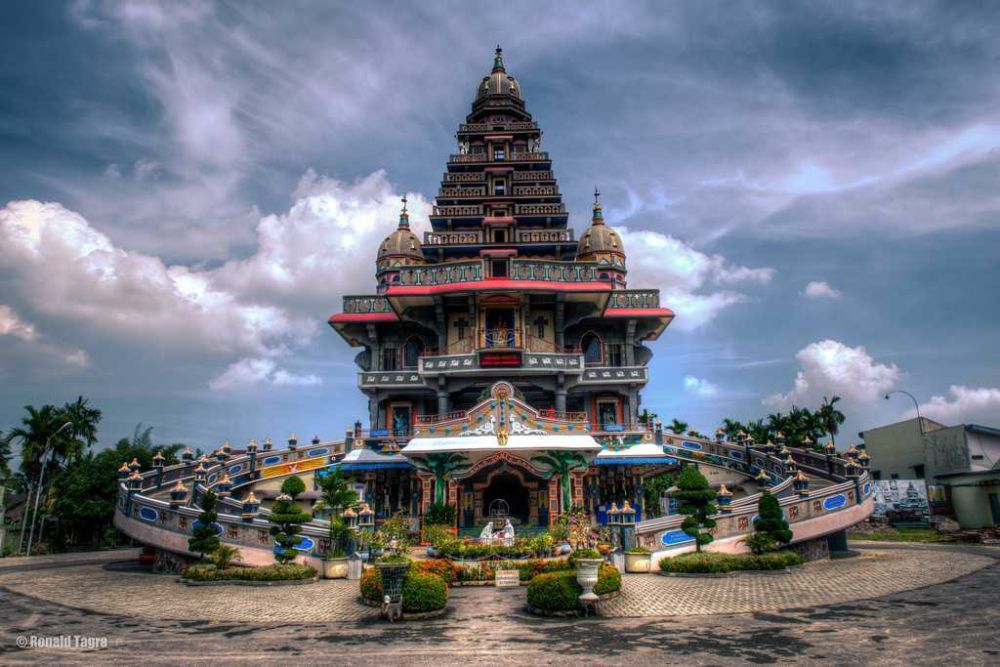

Medan, the capital city of North Sumatra, Indonesia, is a hub of cultural diversity marked by the confluence of indigenous and colonial influences. Its tourism history is rich and varied, evolving from its days as a trading town to becoming one of Indonesia's primary urban tourism destinations.
The roots of tourism in Medan can be traced back to the end of the 19th century when it became a major plantation area for tobacco under Dutch colonial rule. Wealth brought by the plantation economy led to the construction of various historical landmarks that would eventually become tourist attractions. The city's role as a commercial and trading hub led to increased interactions with people from different parts of the world, setting the stage for a multi-cultural community.
Throughout the 20th century, Medan's infrastructure began to modernize, further cementing its position as a significant stopover location for visitors exploring Sumatra. After Indonesia's independence, the city preserved many colonial buildings, such as the Maimoon Palace and Tjong A Fie Mansion, drawing visitors interested in history and architecture.
In the latter part of the 20th century, the city's proximity to natural attractions, like the stunning Lake Toba and the lush landscapes of the Sumatran rainforest, increased Medan's allure. The Orangutan rehabilitation center in Bukit Lawang and the grand volcanoes such as Mount Sibayak and Mount Sinabung have been pivotal in attracting eco-tourists and adventure seekers.
Entering the 21st century, Medan has observed evolving tourism trends with a focus on cultural tourism and culinary tourism. The city's diverse population, comprising Bataknese, Chinese, Indians, Malays, and Javanese people, offers a rich tapestry of cultural experiences and gastronomic delights. Medan's food scene, highlighting unique flavors and dishes such as Saksang and Bika Ambon, has become a major draw for visitors.
Moreover, investment in infrastructure, including upgrades to the Kuala Namu International Airport and improvements in local transportation, has made the city more accessible. This has led to an increase in both domestic and international tourists.
The latest trend in Medan's tourism industry includes the development of digital tourism. Tour operators and businesses are increasingly utilizing online platforms to promote destinations and cultural experiences found in and around Medan. There is also a growing emphasis on sustainable tourism practices, aimed at preserving the natural and cultural heritage for future generations.
Nowadays, Medan is seen as a gateway to the larger Sumatran adventure, offering a mix of urban exploration and a starting point for excursions into the wilder parts of the island. With continuous development and a strategic position in the ASEAN region, Medan's tourism sector looks poised for further growth, promising a richer experience for travelers to this diverse city.